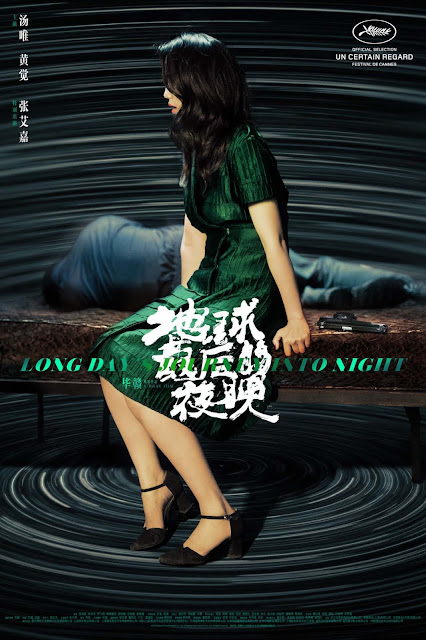Bi Gan enlisted novelist Chang Ta-Chun as a consultant for the script, noting that Ta-Chun aided in the overall film structure as well as the division of the film into two parts. Bi Gan drew inspiration for the film from the paintings of Marc Chagall, specifically The Promenade, as well as the novels of Patrick Modiano. Bi Gan stated that he had difficulty choosing a title for the film, noting that the official international title is Long Day's Journey into Night, a title inspired by the Eugene O'Neil play of the same name, whereas the direct Chinese translation is Last Evenings on Earth, which refers to a short story written by Chilean author Roberto Bolaño. Regarding the two titles, Bi noted that he wanted to choose titles that "matched with the film's spirit" and that he ultimately chose them because they related to two works of literature he admired. The fifty-nine-minute unbroken long take 3D sequence that closes the film took two months to prepare, as techniques had to be devised to move a RED camera through the complicated environment of the scene. It took seven attempts at shooting the sequence before Bi was satisfied. The sequence was shot in 2D and converted to 3D in post-production because a 2D camera was lighter and therefore easier to move in difficult positions and small environments. The film is notable for utilizing three cinematographers - Yao Hung-I, Dong Jinsong, and David Chizallet. Their individual roles were broken down by Gan, who stated that "Yao Hung-I began shooting the first part. We worked together for several months and then he went back to Taiwan. Dong Jinsong then took over for half of the part in 2D and the preparation of the final sequence shot that David Chizallet eventually shot. Chizallet also shot one scene of the part in 2D."
The film stars Huang Jue, Tang Wei, Sylvia Chang, Lee Hong-chi, Chloe Maayan and Ming Dao. Despite the strong performances demonstrated by the cast, their performances more relied the tone and emotion rather than actual characterisations.
Simon says Long Day's Journey into Night (地球最後的夜晚) receives:


No comments:
Post a Comment